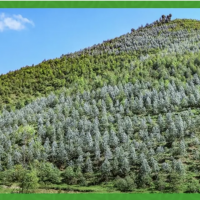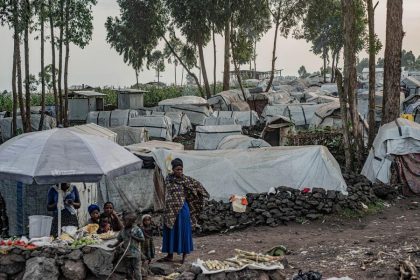This week, the British Government and Prince William will be in the service of a radical animal rights group — the Elephant Protection Initiative. The British Government together with EPI have organized a Conference of African states in London aimed at permanently banning international trade in ivory.
The African countries and people, particularly those from Southern Africa who own both the largest elephant populations on planet earth as well as stockpiles of ivory, oppose the EPI’s continued attempts to end trade in ivory. We believe the EPI is driven by selfish, ill-informed zealots who sound no different to us than the European racists of the 19th Century.
The EPI and its fellow-traveling NGOs, Conservation International and Stop Ivory, along with the British Government and Prince William, demand a worldwide ban on ivory trade without consulting each of the Southern African countries with the largest elephant populations. The Chief Ecologist for Zimbabwe Parks and Wildlife Management Authority, Ms Roseline Mandisodza, notes that the ban in ivory trade would negatively affect livelihoods for communities living with wildlife. “Elephants are keystone and mega herbivore species, ” she said.
She added that without benefits from the ivory trade, the option of using land for wildlife will be threatened with replacement by more viable economic activities “such as agriculture.”
“How much does the EPI, Prince William and the British Government really know about wildlife management problems in Africa, particularly concerning elephants?” asks the former Director General of the Zimbabwe Parks and Wildlife Management Authority, Dr Morrison Mtsambiwa. Dr Mtsambiwa is one of Africa’s top ecologists who also served as CEO of the Kavango Zambezi Transfrontier Conservation Area — the world’s most important concentration of elephants where Botswana, Namibia, Zambia and Zambia share borders. “Do they know how much harm a permanent ban on ivory trade would cause to elephant conservation in Africa?”
“I find it very strange that the world can accept a blanket and permanent ivory trade ban when there is an elephant overpopulation in Southern Africa. Without benefits from ivory trade, the poor rural communities would rather help poach elephants to get benefits from elephants that are killing their loved ones and destroying their crops.”
Zimbabwe’s Hwange Rural District Council Ecologist, Xolelani Ncube, echoes these thoughts: “It is only myopic leaders that will never give an ear to the affected and ever crying communities with regard to strict trade of elephants and their products. They should just keep their mouths shut. The elephants should sustain communities in these countries and not make them poorer for the benefit of those who selfishly call themselves conservationists.”
What does EPI, the British Government and Prince William propose be done with the elephant overpopulation problems found in such countries as Botswana, Namibia, South Africa and Zimbabwe? A permanent and blanket international ban on trade in ivory will only make the situation worse. On the other hand, open and consistent trade in ivory will reduce the price of ivory, make poaching unprofitable, and manage elephant populations to protect their habitat.
It is shameful that the British Government and Prince William, led by EPI, want to hide the real status of African elephants. From the perspective of Southern Africa, it appears that a bunch of rich white guys want to perpetuate colonial dependency, hiding behind African leaders who are bribed with trips, directorships, and other emoluments to accept Western conservation values that do not benefit Africa. It is equally shameful that African leaders allow those from outside the elephant range states to tell them what to do with their ivory in exchange for strings-attached donor handouts.
Lupane State University of Zimbabwe Senior Lecturer, Dr Mlamuleli Mhlanga, says: “I view the total ban on ivory trade as a punishment to communities that have done their best to conserve their resources. As their elephant populations continue to increase alarmingly, elephant crop raiding will expose these rural communities to food insecurity and poverty. Is that what Prince William wants? Where will the incentives for conserving the jumbos come from? I am totally against such a decision [ban on ivory trade] which disadvantages the poor rural communities in Africa.”
The world needs to note the truth about the differing status of all African elephants, not just those in the select countries selected by Prince William, the British Government, EPI, Conservation International and Stop Ivory. This group is misleading the world to believe that the entire African continent no longer has viable elephant populations. This produces underserved support for a worldwide ivory trade ban. The truth from Africa’s leading ecologists is that “elephant populations of Southern Africa and their stockpiled ivory represent sustainable and renewable commodities that can support conservation and native communities into the foreseeable future.”
“Zimbabwe’s Hwange Rural Community is one of the communities really suffering from the unjustified ivory trade ban,” said a Hwange elephant attack survivor, Mr Biggie Shoko. The world needs to pay attention. The ban needs to end.
About the writer: Emmanuel Koro is a Johannesburg-based international award-winning environmental journalist who has written extensively on environment and development issues in Africa.
By Emmanuel Koro
Johannesburg, South Africa
The Express News










